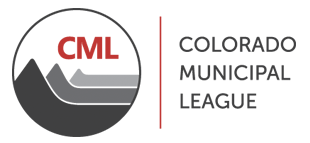Legal Corner: New competition for local sales tax revenue
In This Section
CML Newsletter
January 10, 2025
By Rachel Bender, CML senior associate counsel

Sales and use taxes have been the main revenue source for most Colorado municipalities for decades, with a historical average of three-quarters of general purpose tax revenue coming from sales and use taxes. Other local governments, in contrast, derive the largest portion of their general purpose tax revenue from property taxes.
Given the volatility of property taxes and the General Assembly’s recent push to reduce property taxes to the detriment of local governments, some local governments have sought alternative revenue sources. A prime example is the passage of Senate Bill 24-194 (SB24-194) to benefit two types of special districts – fire protection districts and ambulance districts (“emergency services districts”).
SB24-194
Introduced late in the 2024 legislative session, without prior notice to or consultation with other local government partners, SB24-194 passed through the General Assembly with relative ease. Despite the Colorado Municipal League’s veto request, the Governor signed the bill into law on May 22, 2024. The law repealed the cooperative process for establishing impact fees on new development that was enacted in 2016 and gives emergency services districts independent authority to impose impact fees, as well as authority to levy sales taxes within their jurisdiction regardless of coordination with or input from overlapping counties or municipalities. Lawmakers declined to address existing impact fees imposed by municipalities to benefit fire protection districts.
New competition for sales tax revenue
This new authorization for emergency services districts to unilaterally impose sales tax raises concerns for municipalities. The primary concern is that it increases competition for limited sales tax revenue and has the potential to disrupt municipalities’ tax bases, which primarily consist of sales and use tax revenue and is used to fund essential municipal services. These concerns remain despite the requirement for any new sales tax to be approved by voters pursuant to the Taxpayer’s Bill of Rights (also referred to as TABOR). This is because sales tax is a finite resource and any increase in sales tax by one entity is likely to make it more difficult for any other overlapping jurisdiction to gain approval for a future sales tax increase in that same location.
Where local governments previously had an implicit understanding and cooperation regarding the imposition of sales tax and property tax, avoiding competition for those revenues and imposing undue burdens on residents, that may no longer be the case when it comes to sales tax.
How to limit negative impacts
Some fire protection districts have already begun preparing to go to voters at the next election to seek a sales tax. There are several approaches municipalities may wish to consider in determining how best to work with their local emergency services district or address a ballot measure for a new sales tax put forward by such a district.
In approaching discussions about seeking a new sales tax, consider asking the emergency services district about alternative options for raising revenue and help the district understand the nuances of reliance on sales and use tax. For example, the district could seek to impose an impact fee instead of a sales tax. Alternatively, instead of imposing a broad sales tax in perpetuity, an emergency services district may be able to accomplish its needs by seeking a sales tax at a lower rate, with a sunset clause, or for limited purposes. Limiting the impact of the district’s sales tax may ease the negative impacts to the municipality, at least in the long term.
If a district decides to move forward with asking voters to approve a new sales tax, whether broad or narrow, the municipality should consider appropriate next steps. If a municipality provides any funding to an emergency services district or has coordinated the imposition of an impact fee with revenue going to the district, it may wish to consider withdrawing or limiting that funding source. Doing so may help alleviate current or future budget impacts to municipalities as a result of a district’s new sales tax.
Finally, if desired, the municipality can take an active role in the election process. Subject to limitations imposed by the Fair Campaign Practices Act, a municipality can engage the public leading up to the election by publicizing the election through usual channels to make voters aware of the election as, at times, elections by smaller political subdivisions can fly under the radar. Additionally, a municipality can submit comments for the ballot issue notice.
Ultimately, the goal is to maintain a collaborative and beneficial working relationship with overlapping emergency services districts despite this taxing shift. In doing so, municipalities should consider whether they need to utilize these or other tools to maintain their financial health.
This column is not intended and should not be taken as legal advice. Municipal officials are always encouraged to consult with their own attorneys.
